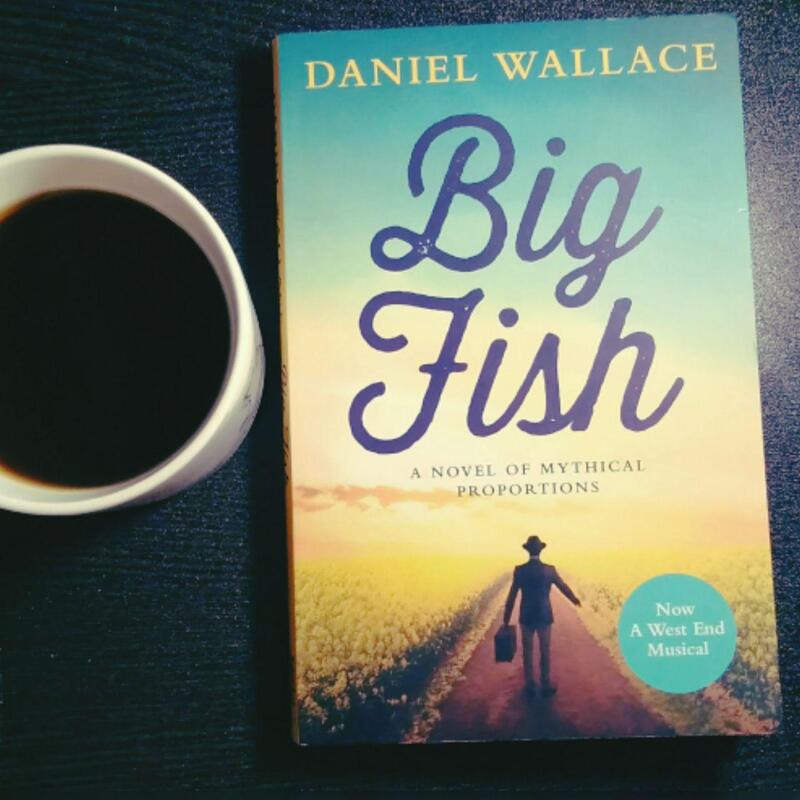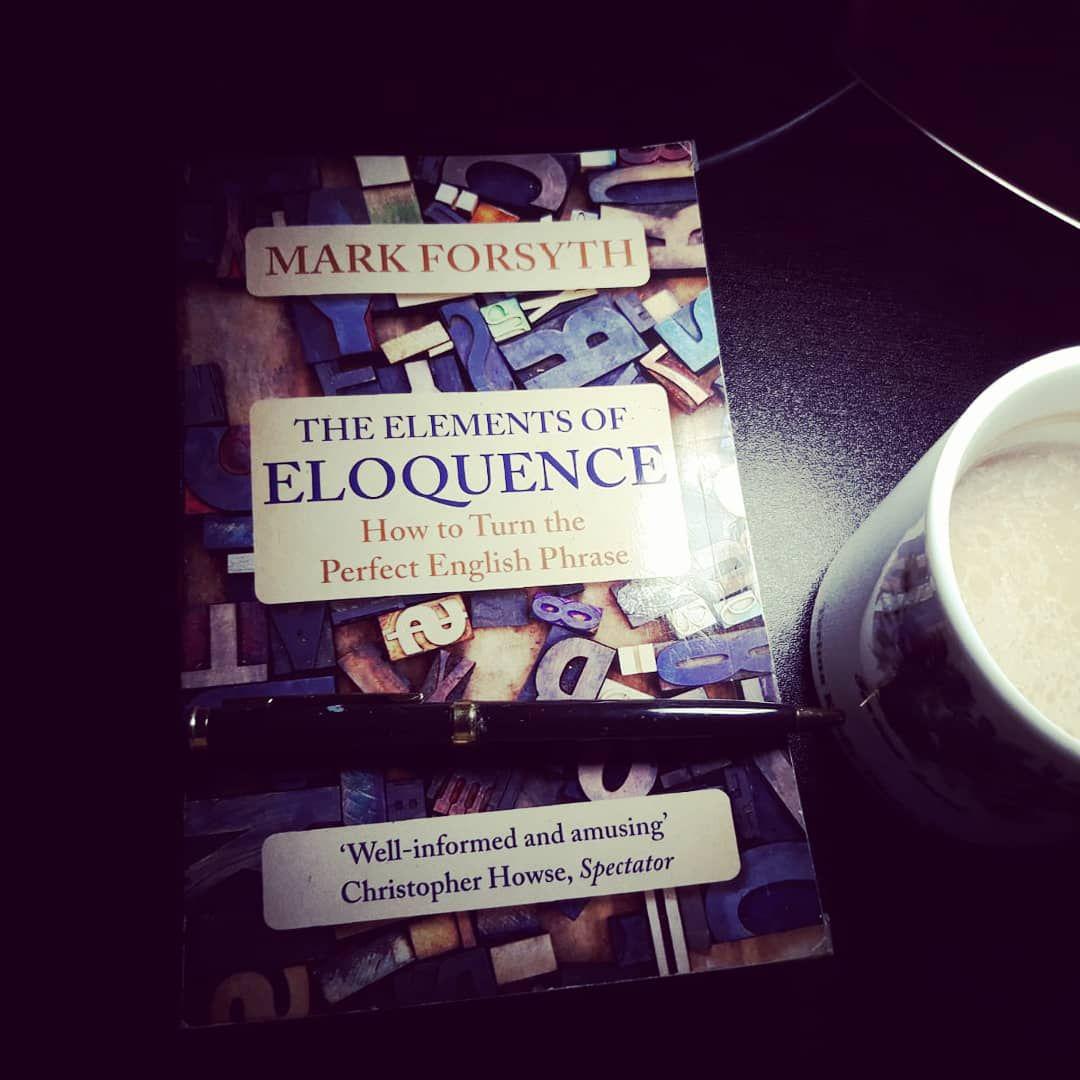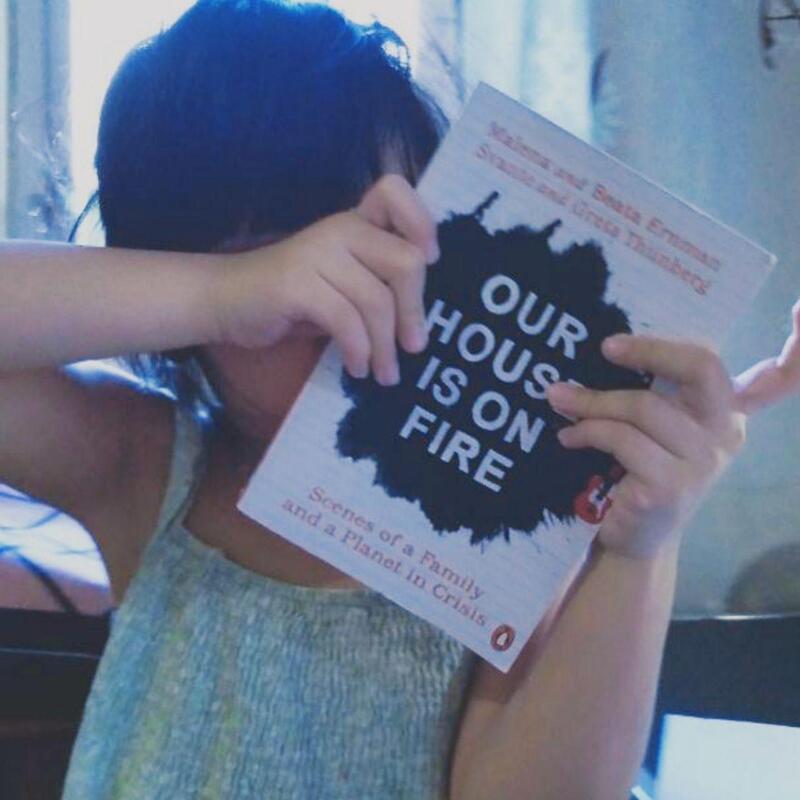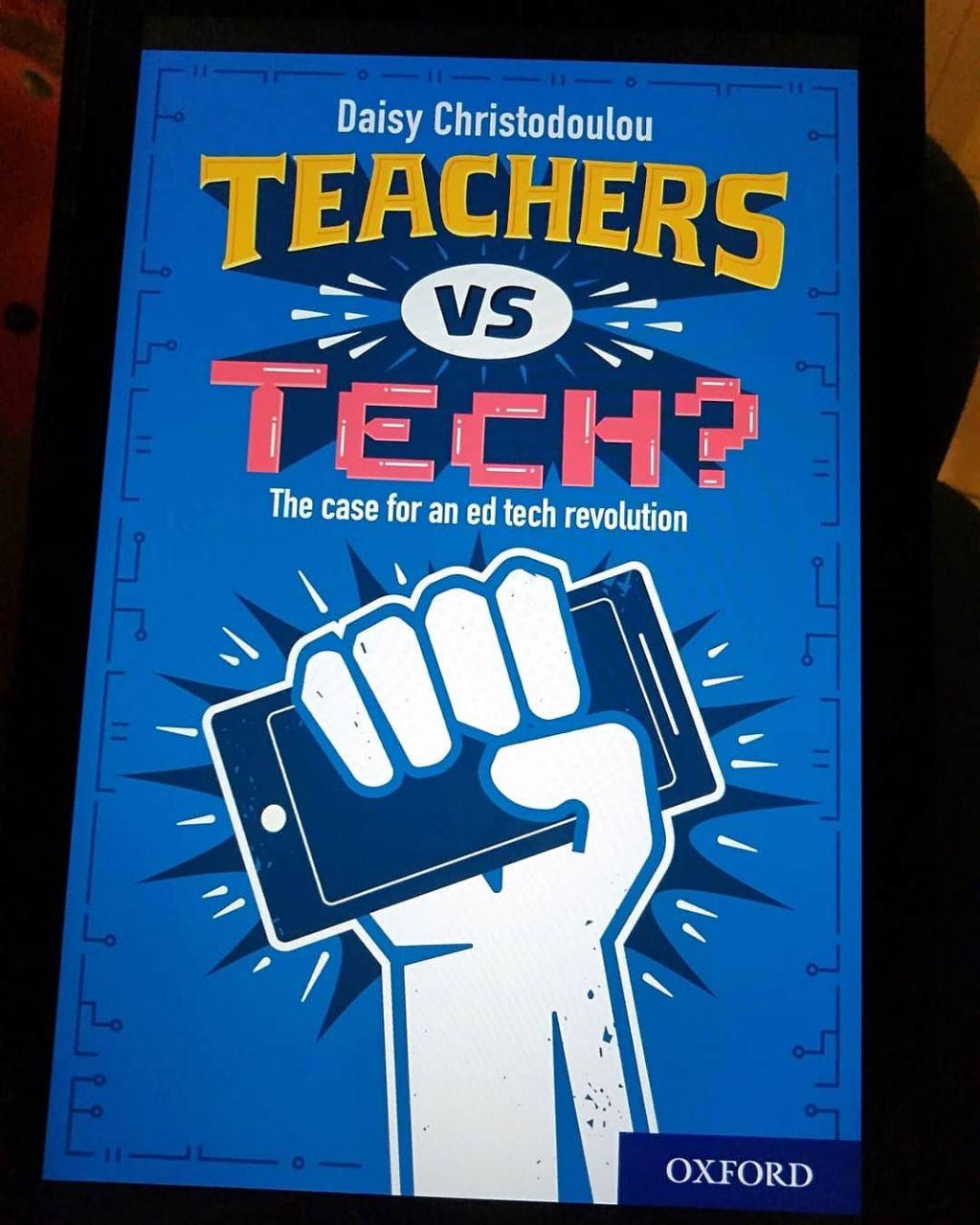|
It took me just one day to finish this one. A lovely novel, I highly recommend it. Sharing below my review from GoodReads:  Big Fish by Daniel Wallace Big Fish by Daniel WallaceMy rating: 4 of 5 stars I watched the Tim Burton's movie at home with my brother a long time ago, when I was still a college student. My brother got all moved because he said the movie reminded him of my father. Tall tales, endless daddy jokes, the absence, the infidelity, the difficulties to connect. I don't remember the movie that much, and can't decide if it makes a big impression on me, but I do like this book. Reading it you'll realise that it's almost plotless, and apart from Edward Bloom, no one else in the story develop that much. But these are not the novel's strength. The magic, to me, lies in the writer's ability to lure readers into the wonders of the tall tales and the myths and the half-truths, and in the mental journey of deciding which stories to believe and which way they should be interpreted. William, Edward Bloom's son, is telling a story about his dying father - reminiscing about his life from childhood to present, as it had been told to him, and as he remembers it. Edward wants to be a great man and thinks of himself as a great man. This is evident through the tall tales he told about himself, how "nobody doesn't love him" (David Wallace seems to be fond of double negatives like that), how even animals succumbed to his "fabled charm," how he had saved the lives of so many people (including a mythic creature such as a half-fish river lady), and by whom he was occasionally saved in return. The whole novel is about the life of one man told in a series of parables and metaphors. If we can sift through the myths and fables, the emerging image is that of a man from a poor background who came from a small town where the dwellers are often stuck in a humdrum of a world without dreams and ambitions, but this man rebels and breaks away, pursues his dreams and makes a successful and decent life for himself. He marries a girl he likes and who likes him (though not without a fight), is blessed with a son whom he dotes on. He becomes wealthy, and very busy. He's on the move all the time - because of his business, and also because he's having an affair with a young lady somewhere. He returns home when the young lady breaks off with him, and stays home for a long time after being diagnosed with a terminal disease that eventually leads to the end of his mythical "immortality." Because these stories are told from the perspective of William the son, we can catch a glimpse of how this son perceives his father. He clearly adores his father. He looks up to him. He thinks he's strong and handsome. He used to love his jokes and stories, but over time he becomes tired of them, especially when he realises that his dad is using the jokes and stories to evade serious conversations. He wishes for more chance to get to know his father, to create a closer bond with him. He's mad about him being absent all the time. Despite his anger and frustrations, William still clearly loves his father so much. He's careful about how he wants to tell the story of his father's death. oscillating between the desire to express his frustrations and to preserve his father's image of himself as a "great man." William has to tell the death-bed story in four "takes", each reflecting in gradually exaggerated and more dramatic manner the reality of his relationship with Edward. But the one he finally settles on is the one which ends with his father not dying, just transforming into the "big fish in a big pond" he always aspires to be. I'm still not certain if I can relate the character of Edward Bloom to my father just like my brother has been able to, but I can sure see myself in Edward Bloom. In fact, if we want to be brutally honest, I think Edward Bloom represents all of us. Edward wants to be a great man - don't we all? And I'm not just referring to the desires to be successful, or to make a name for ourselves. I guess everyone wants to be remembered in a certain way when one dies and leaves the world. Everyone wants to have a legacy. Everyone wants to do something good that people can remember forever. We all want our stories to live on beyond our lives on earth. At the end of the day, it matters not if Edward Bloom is indeed a big fish in a big pond. All that matter is that he at least is, in the eyes of his son. View all my reviews
On to the next book. Take care!
-ccj, Duvanson, 4th June 2021, 7.25am
0 Comments
Just finished reading this book yesterday, and I'm very happy. Sharing here my review from GoodReads:  The Elements of Eloquence by Mark Forsyth The Elements of Eloquence by Mark ForsythMy rating: 5 of 5 stars This is an entertaining little book filled with wisdom and amusing facts on rhetorical figures. Anyone who loves the English language, or the beauty of languages and beautiful writing for that matter, will definitely enjoy this little gem. It has 39 chapters, each dedicated to explaining a particular figure of rhetoric in the most illuminating and delightful manner. Reading it gives me the chance to revise more familiar rhetorical figures like alliteration, antithesis, assonance, anaphora, metonymy and synecdoche, personification, and hyperbole; but also less familiar ones (at least to me) like polyptoton, hyperbaton, hendiadys, catachresis, epizeuxis, zeugma, and scesis onomaton. To explain each rhetorical figure, Mark Forsyth draws examples from great writers, poets, playwrights, pop artists, rock and roll singers, movie actors and actresses, politicians, philosophers, and God (I mean the Bible). His writing is fun and engaging; it's hard for me to put the book down. The book claims to offer "tricks to make the most humdrum sentiments seem poetic or wise" (from the blurb on the back cover), and it doesn't disappoint. The blurb also says that the book will show how I can do the same - Forsyth concurs in the introduction part of the book thought-provokingly titled 'On Cooking Blindfolded': "Shakespeare got better because he learnt. Now some people will tell you that great writing cannot be learnt. Such people should be hit repeatedly on the nose until they promise not to talk nonsense any more" (p. 2). I'm still not better at writing after finishing the book, but I'll definitely never going to read any written sentence in any language in the same way ever again. This is a book that I would want to go back to often - to refer to, to learn from, to contemplate. I think if all writing teachers can just make the teaching of rhetorical elements as entertaining, anyone who wants to write beautifully can learn how to do so, if they want to. At the very least, understanding of rhetorical figures can certainly afford humans the chance to discover a more in-depth appreciation for literature and beautiful writings. In the penultimate section of the book, the 'Peroration', Forsyth reveals his hope for the book: to dispel "the bleak and imbecilic idea that the aim of writing is to express yourself clearly in plain, simple English using as few words as possible" (p. 201). And he goes on to say, "To write for mere utility is as foolish as to dress for mere utility" (ibid). (Can I show this to my academic journal editors? :P ) Without figures of rhetoric, "we would merely be us: eating, sleeping, manufacturing, and dying. With them everything can be glorious. For though we have nothing to say, we can at least say it well" (p. 202). I think that aptly recapitulates what The Elements of Eloquence is all about. View all my reviews
That's all for today. Till the next post!
-ccj, Duvanson, 3rd June 2021, 9.23am I would like to start sharing my book reviews from GoodReads on this blog, so here's the first one:  Our House is on Fire: Scenes of a Family and a Planet in Crisis by Malena Ernman Our House is on Fire: Scenes of a Family and a Planet in Crisis by Malena ErnmanMy rating: 4 of 5 stars This book is jointly written by Greta Thunberg, her parents Malena and Svante, and her sister Beata. It relates the family's journey that leads towards Greta's historical school strike for climate change in front of the Swedish parliament building in August 2018. I picked it up expecting to read accounts of fights for environmental protection and the climate crisis, but what I discovered was more than that and I was pleasantly surprised. Written from Malena's point of view, the book describes the family's struggles with being different - not just because they're fighting for a cause that's often looked at with cynicism by most people (especially by First World's privileged upper-class population who have been benefitting so much from environmentally-destructive economy), but also because both Greta and Beata suffer from neurological disorders that make everyday life more challenging compared to most people. Greta has Asperger's, OCD, and eating disorder; while Beata has ADHD, OCD, autism, and misophonia. Malena herself was diagnosed with ADHD in adulthood. People say autistic people see everything in black and white, they see no shade in between, and they tell a thing as it is. In that sense, and especially when it comes to matters as black and white as the climate crisis, autistic people are a gift to the world. I've been following Greta's work for quite a while and I'm always in awe of her ability to focus on what matters. She never sees the need to respond to hatred, abuse, and vitriol - her dogged determination and relentless assertiveness are enough to shut negative people down. Despite its simplicity of message and style of writing, I find this book moving and thought-provoking in many ways. First and foremost, of course it makes me think about the environmental crisis, how much damage I've contributed as an individual, and what I should do to help change things for the better. I'm never a climate change denier, but I confess that I'm a lukewarm laggard, and I belong to the group who clings to false hopes in future technologies that haven't yet been invented. Technologies that can purportedly suck all excessive CO2 from the air and solve the problems once and for all. I also belong to the group who thinks switching to 'green products' and driving hybrid cars are enough to mitigate the damage. But of course I'm wrong. Secondly, the family's story also makes me think more deeply about inclusivity and acceptance. Because of their multiple conditions, the Ernman-Thunberg family always feel like they don't belong anywhere. School is a struggle for both Greta and Beata. Admins and teachers are not always supportive of the children's needs for differentiation - which comes as a surprise to me honestly. I naively thought countries as progressive as Sweden would fare better in matters like inclusion, but apparently I'm wrong. I'm also very unimpressed with the school's manner of handling Greta's bullying by her peers. This part of the book, I guess, is what touches me the most. I mean, the environment message is important and it does spur a repentant mode in me. However, the experience of being an outsider is one that always resonates the most because I, too, grew up thinking I don't belong anywhere. I, too, was a victim of bullying - simply because I'm different. Now that I'm a teacher myself, I feel more strongly than ever that children should be allowed to work alone if they want to (as opposed to forcing them to work in groups even if they're uncomfortable), and to encourage them to speak up only when they're ready (as opposed to awarding points for 'participating' - this is forcing students to speak even if they're not ready, and is seriously damaging for those who have issues speaking in public. I failed a paper for one particular semester just because I chose to remain silent during group discussions). All in all, we need to stop being judgemental towards kids who seem socially awkward (these kids don't do it on purpose. Believe me, I know). The best thing we can do is to let students learn at their own paces and in ways that are most convenient for them. Greta has selective mutism, but would you be able to guess that judging on how eloquently she delivers her speeches? The best thing we can do for some children is to just let them be. Last but not least, there's an emerging trend which seems to point towards adults' (especially politicians, people in power) tendency to think it's okay to pick fights with children over causes they don't want to bother about. It's okay to disagree with anyone about anything, but it's never okay for someone with prominence and privilege to bully young helpless kids. We see it in Greta's fight over environmental issues, we see it in Malala Yousafzai's fight against education inequality for girls. Closer to home (Malaysia), we see it in Ain Husniza's fight to #MakeSchoolASaferPlace, we see it in Veveonah Mosibin's experience of being a victim of digital inequality during the pandemic. These are just a few examples. What's wrong with adults? In short, I highly recommend this book. It delivers important messages, but it's very easy to read and surprisingly a page-turner, too. View all my reviews
I've been a GoodReads member for many years, but last year was the year that I started to update my shelves and to post reviews more consistently. I think it's a good way to keep track of books that I've read. More than that, it's a good way to force myself to put my reflections down in writing. It's also a great way to motivate myself to read more books.
Go here if you're interested in connecting with me on GoodReads, We can share thoughts on books, and discuss bookish stuffs together :) Till the next. ccj, Duvanson, 16th May 2021
The most memorable assignment during my undergrad studies was for the English Literature course. It was a group task where we had to rewrite a Shakespeare play of our choice and then performed it in front of our lecturer and our classmates. Our group's version of The Merchant of Venice required Antonio (a part that I had to play) to perform a soliloquy. I wrote a sonnet for him - just for fun.
For Each Passing Season Shall I compare life to changing seasons And man to the plants that conquer the earth? For each passing season there are reasons And the reasons define mere mortals worth. In summer time, the reasons are budding In spring they blossom, in autumn they fall Then cold winter leads to reasons fading Bitter snow buries the reasons and all. Mere mortal I am, and my winter is Fast approaching and fast coming to end My reasons and my seasons and my bliss My joy and my pain and the whole life I spend. Final farewell my fellow friends for now I'll bow to my vow, if you would allow. Here's a recording on SoundCloud Antonio recited this in prison when he learned that he was unable to pay moneylender Shylock the amount he had borrowed on behalf of his friend Bassanio because his merchant's ship was lost at sea. Shylock demanded to be compensated with "a pound of flesh," or in other words, he wanted to physically hurt Antonio - perhaps to kill him. So the sonnet was some sort of a farewell message. The way I interpreted it, Antonio was quite ready to die for the sake of his friend. He saw his imminent death as a "season," - it was sad, even tragic, but it was also certain and inevitable. Through his soliloquy, Antonio expressed a sincere desire to "bow to his vow," - to answer the call to honour life's natural precepts in the most respectable manner. Writing the script and performing with my group members were fun, enjoyable times. English Lit was without a doubt one of my favourite courses. But not long after, something shocking and devastating happened which changed the way I wanted to look back at this memory. Just a few months before our graduation, we received news that JC Ng, the beloved lecturer whom we did the Shakespeare assignment for, had perished in a plane crash. She was 33. From being a piece created playfully to remind myself of the good old days, Antonio's sonnet suddenly transformed into something that reminds me of her tragic end, of the fragility of life, and of how brief our candles are - as Shakespeare himself would put it.
Flip sides of the same coin
The Book of Two Ways by Jodi Picoult was the first fiction I read this year. The story's main theme is death, though it also deals with questions about life and what-ifs, about love and forgiveness, and about human desires and the pursuit of dreams told through the subjects of Egyptology, quantum physics, multiverse, Irish superstitions, and the job of a death doula. It starts with the main character's brush with death when the plane she was on crashed unexpectedly. A plane crash. Of all things. Reading the book brings me back to my memory of the late Ms JC, to my Antonio's soliloquy, to my fear of flying, and also perhaps to my thoughts about death and dying which I've been entertaining since last year. I don't think I'm alone in this, though. I guess pandemic-ridden 2020 had forced a lot of people to think about life and death in ways they never did before. One of the questions I find myself asking is this: Am I afraid to die? Dawn, the book's main character, said that fear of death is a common thing - indeed all fear is a fear of death. Fear of flying is definitely a fear of dying in a plane crash. Fear of snakes is a fear of being bitten to death. Fear of height is a fear of falling to death. Maybe I do fear my own death - but I guess I fear experiencing the death of my loved ones even more. I guess I'm not alone in this. A lot of married couples I know seem to prefer dying before their spouses do - it's easier to be the one who leaves than to be the one being left behind. I found an echo of this in the book, when it mentions how "every story is a love story," i.e. "love of a person, a country, a way of life." Hence, "all tragedies are about losing what you love" (p. 67). Picoult also writes: My Reading Notes: Teachers vs Tech? The case for an ed tech revolution by Daisy Christodoulou1/19/2021
I'm thankful to start 2021 with Daisy Christodoulou's new book, Teachers vs Tech? The case for an ed tech revolution, published in March 2020 by Oxford University Press. In this post, I like to share my personal notes and reflections on some of the important key points.
Christodoulou, who is the Director of Education at No More Marking and the author of Seven Myths of Education (2014) as well as Making Good Progress? The future of Assessment of Learning (2017) - is also an English language teacher. This has made the book all the more appealing to me. To deliver some of her arguments, she offers lots of examples and anecdotes from classroom experiences that resonate with my own. Of course, there are plenty of examples from other subjects like mathematics and science, too - but it is my belief that many English language teachers would find this aspect of the book helpful in so many ways.
The book's Foreword is written by Paul Kirschner. He ponders on the fact that despite all the hypes that surround it, ed tech doesn't seem to be successful in revamping education in the same ways that previous revolutions like the printing press and the blackboard (or the chalkboard) did. At least not yet. In Kirschner's words: In my working life as an educational psychologist and instructional designer (at the time of writing, over 40 years). I've had to suffer the prophecies and predictions of trend watchers, trend matchers, futurologists, corporations, educational gurus, and eduquacks telling me how information and communication technologies were the next revolution in education. Up until now, these technologies have been little more than expansions of the first two real revolutions. (p. 10)
The questions that we need to ask
The introduction chapter opens with a quote by Thomas Edison from 1913 where he predicted that books will be obsolete and that everything will be taught with "motion picture" in ten years. Echoing Kirschner's sentiment in the Foreword, Christodoulou points at how education today has remained almost similar to how it had been in Edison's time. She writes: "Compared to the change and disruption that technology has brought to practically every other part of our society, education is an outlier" (p. 14). Christodoulou argues that if education does indeed need to change, these are the two fundamental questions that we need to ask: 1) how do humans learn? and 2) what causes learning to happen? The main theme of the book is to find out "the gap between what we know about human cognition, and what often gets recommended in education technology" (p. 22). According to Christodoulou: If we can reconnect both education and technology with the research underpinning them both, there is enormous promise for a genuinely successful revolution. (p. 23) |





 RSS Feed
RSS Feed